In the fast lane: how these multinationals are changing the game for startups in India
The vibrancy of the Indian startup ecosystem has witnessed the mushrooming of accelerator programmes from global MNCs.
A startup’s journey is always uncertain and faces technological, financial, legal and marketing issues. Accelerator programmes form pillars of support for many of these young firms, and in the process lays down a strong foundation.
These accelerators are varied in their philosophy, but the bottom-line is to provide that vital support and walk along with the startups in their journey.
The experience of an accelerator is one of rapid and intense learning process, which comprises of education, mentorship and financing. This brings in the element of scale for startups as the entire session, which can last from a couple of weeks to a whole year, is always done with a smaller number of startups.
According to a survey by the Global Accelerator Learning Initiative (GALI), India has around 259 startup incubators and accelerators.

Among the various accelerators in the country, the programmes run by multinational corporations (MNCs) play a crucial role as they have a global reach and an illustrious corporate history. At the same time, these MNCs are also very keen to tap into the vibrant startup ecosystem in the country, which is engaged in new-age technologies and is looking at a win-win situation for both parties.
YourStory lists the top eleven startup accelerators being operated by top MNCs in India.
Shell E4
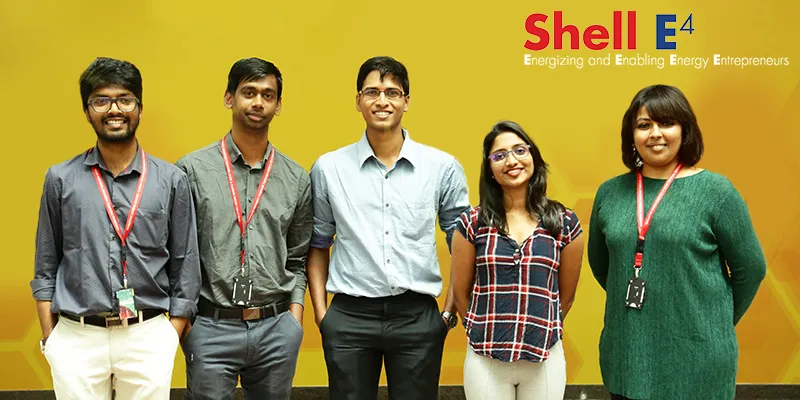
The Shell E4 programme builds on the company’s global vision to support the energy sector’s evolving ecosystem. The E4 stands for Energising and Enabling Energy Entrepreneurs. The programme, launched in December 2017, looks at engaging Indian entrepreneurs working on energy-related startups.
Under this programme, which is spread over six months, startups in the early stages or even at pilot phase will have access to Shell India’s infrastructure, expertise, capital, and customers. These are done with the view that the startups are able to accelerate their business growth while testing the commercial and technical viability of their business offerings. The focus is to help them become sustainable, profitable, and impactful organisations. The programme is based in Bengaluru at Shell’s Technology centre.
Target
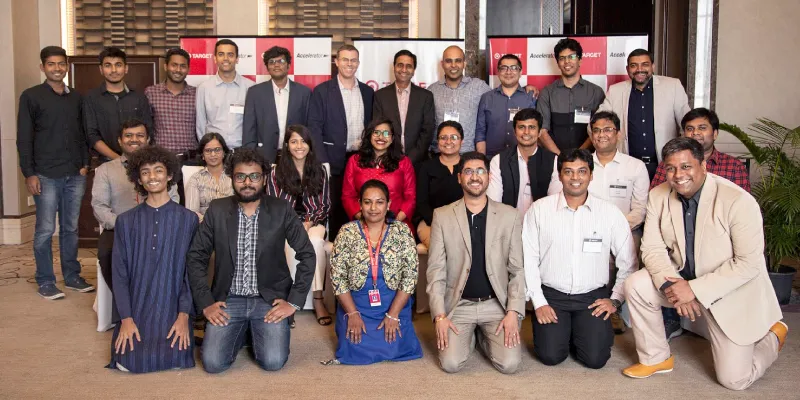
The leading retailer in the US, Target has been running its accelerator programme since 2013 in India, and has successfully worked with 30 startups in five batches. The 2018 batch has six companies lined up for its four-month programme. The focus of this programme is to improve Target’s business and also the broader retail industry. It is open to early stage startups and the programme provides end-to-end support, which includes space, technology tools, mentoring and access to customers. The startups also get an opportunity to work with the senior leadership team at Target India’s office in Bengaluru where this programme is conducted.
SAP
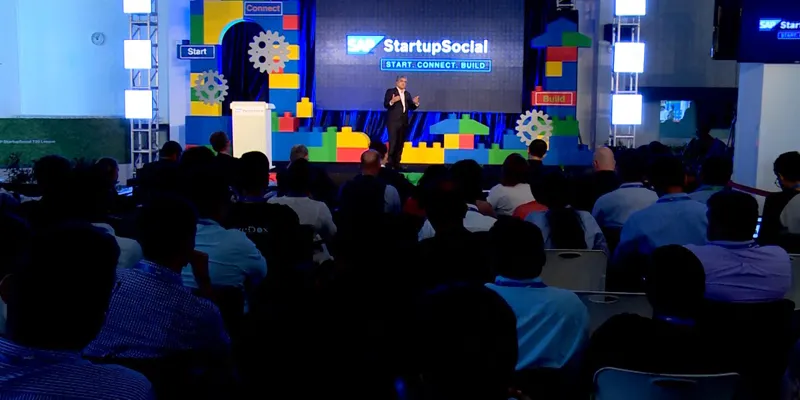
German software maker SAP Labs founded its accelerator initiative called the SAP startup studio in 2016 in India. As part of its 12-month programme, the SAP studio offers a range of services including deep dive and technology mentoring on SAP technologies, co-innovating, and market access through its customer ecosystem in India. This is open to early-stage startups, and also includes those in the product testing phase. The key differentiator is that it helps startups identify the SAP product fitment and provides them with an opportunity to interact with the sales force in India. It is based out of Bengaluru.
Microsoft
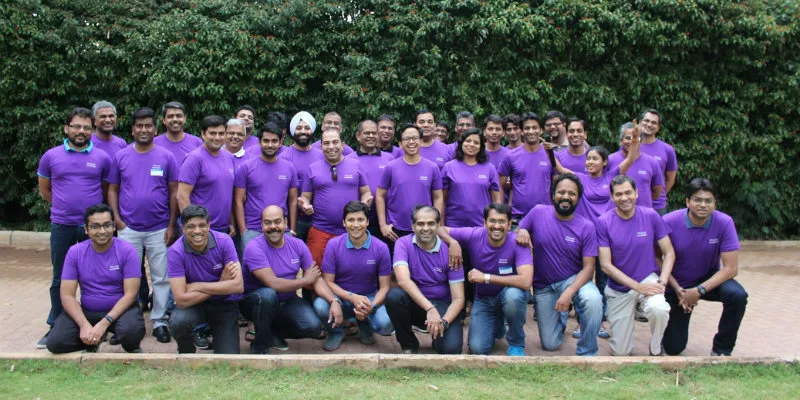
The software giant has been an old player in the field, and started its accelerator programme in India in Bengaluru in 2012. It has, through many iterations, engaged at the incubation stage and later evolved into late stage and go-to market. Having helped more than 100 startups graduate so far, the accelerator programme has morphed into what is known as Microsoft ScaleUp. It focuses on late stage B2B startups and helps them accelerate their business growth through mentorship, streamlined go-to-market activities and access to its wide range of technologies. The programme is spread over a period of six months and is based out of Bengaluru.
Qualcomm
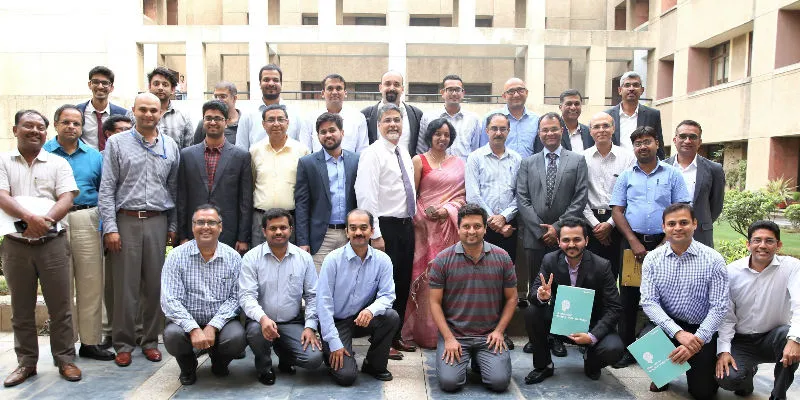
Since 2015, the Qualcomm Design in India Challenge (QDIC) has been the definitive platform for smart product startups in India, where innovative solutions are built incorporating Qualcomm’s chipset platforms and technologies. It focuses on sectors where the impact is highest - agriculture technology, medical technology, rural IoT (internet of things), payment terminals, biometric devices, and smart infrastructure. There are custom-made mentorship programmes spread over a period of nine months that looks at areas such as operations, customers, competitions, financials, seeking investments, etc. The programme is based out of Bengaluru.
Cisco
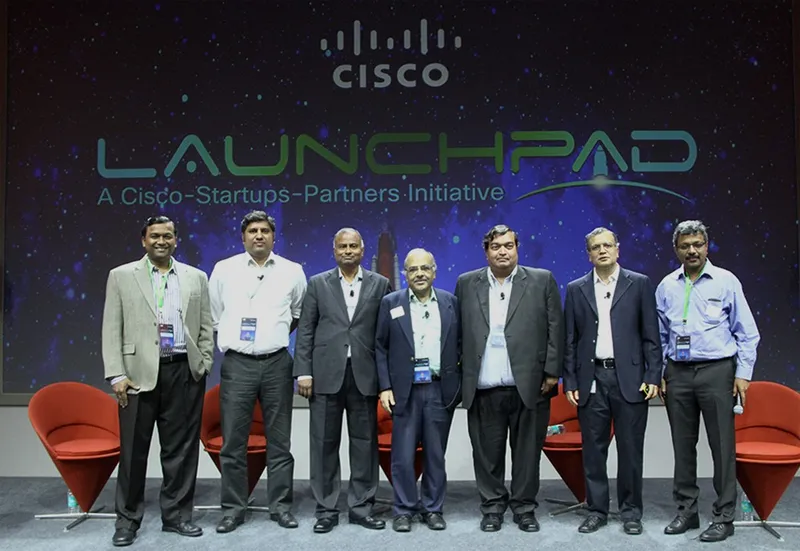
Cisco LaunchPad, the accelerator programme of the networking giant, was launched in India in 2016, where it brings together the technologies, startups and partner community to deliver business-relevant digital solutions. It is open to mid-to-late stage technology and technology-enabled startups and the programme focuses largely on the core technology areas of Cisco. The programme provides co-working space, workshops, speaker sessions, mentorship and investor/industry connects. The programme runs for four months in Bengaluru and Cisco does not provide any equity funding.
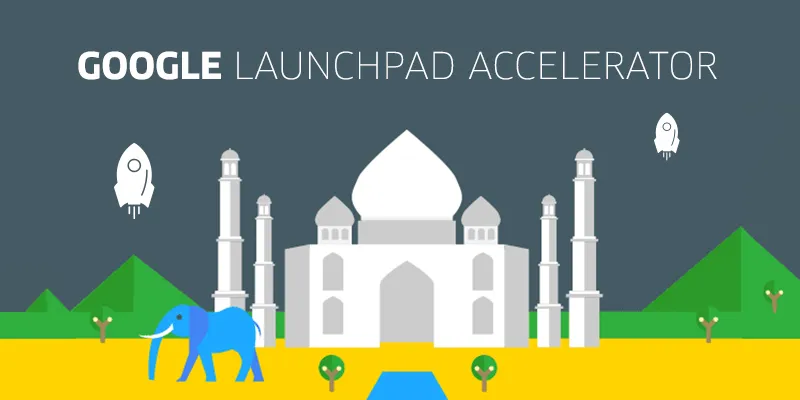
Google has engaged with Indian startups over the last three-and-half-years through its Launchpad Accelerator programme, with 30 firms having benefitted so far. In July this year, the Google Launchpad Accelerator India initiative was launched in Bengaluru, tailored exclusively for startups based in India deploying Machine Learning/Artificial Intelligence to build solutions for the local needs. This is a three-month programme, which provide access to people, network and technologies, and the startups receive Google cloud credits from $20,000 going up to $100,000. It works with a range of startups and the minimum criteria required is that the firm should be at least seed funded.
Bosch
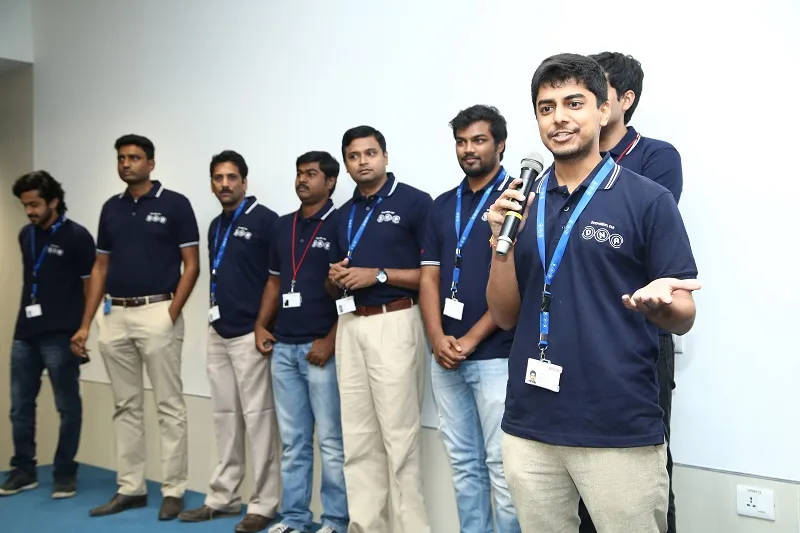
German industrial conglomerate Bosch’s startup accelerator programme called DNA - Discover, Nurture and Align - was started in May 2016 in Bengaluru. The programme is spread over a period of four months and is now in its second edition. Open to early-stage startups, the programme gives access to Bosch’s Maker’s Lab, software tools, mentoring to get funding, incubation space, legal support, sales and marketing support. Bosch looks at startups in areas such as aerospace, IoT, sensors, healthcare, smart city, agriculture, Artificial Intelligence (AI), Machine Learning (ML), etc. This gives Bosch the alignment into its business areas.
Intel
Launched in 2016, the Intel India Maker Lab is an accelerator programme for hardware startups by Intel India, Department of Science & Technology (DST), Government of India, and Society for Innovation & Entrepreneurship (SINE) IIT-Bombay. Based in Bengaluru, this year-long plugin programme aims to accelerate design in India capability to promote Make In India and digital India initiatives. It provides access to hardware and software development kits, mentoring, networking and also facilitation to conduct field trials. The programme engages startups in technology areas such as AI, ML, Blockchain, IoT falling in the domain of healthcare, manufacturing, retail, and transportation.
GE Healthcare
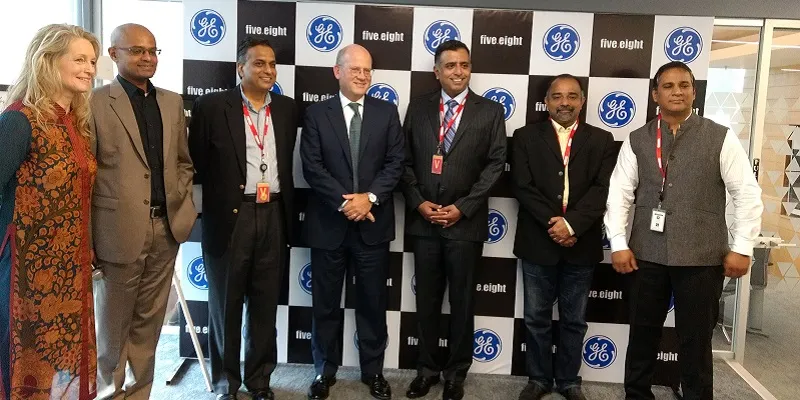
GE healthcare startup accelerator called five.eight was launched in 2016 in Bengaluru. According to GE Healthcare, the focus of this programme is to improve healthcare systems in developing countries. It looks at fairly mature or late-stage startups where the products are a clinically proven solution. It looks at commercial scalability of global health solutions with the potential for GE healthcare distribution or integration with its affordable care portfolio. The startups get access to healthcare market-related information and funding and other strategic investments of up to $5 million on a case-to-case basis.
Intuit
The US-headquartered financial and business accounting software maker in India set up its CSR initiative – Intuit Rise in 2017, which aims to bring out initiatives focused on women, youth and environment. Under this initiative, it has launched the women-in-business accelerator programme in partnership with IIM Bengaluru and TechnoServe. Under this, selected women entrepreneurs will get to attend a business programme from IIM-B and receive mentorship from advisors from TechnoServe for a period of six months. This is open for women-led ventures, which are small businesses and they undergo business and financial management training. They will also receive access to a business advisory council and mentors. It is based out of Bengaluru.











